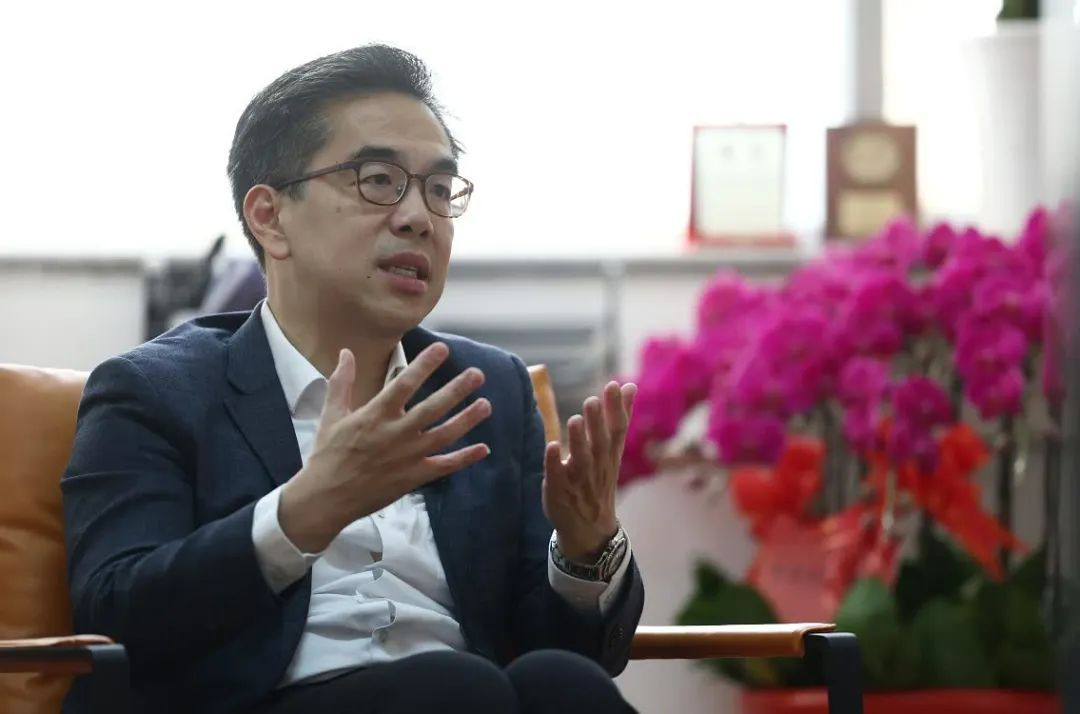Editor’s Note
On the afternoon of February 23, the 16th Great Wall Friendship Award Ceremony and Symposium was held at Shougang Park. Fifteen foreign nationals were recognized for their contributions in various fields, including economy and finance, science and technology, education, medical and public health, culture and sports.
The Beijing Great Wall Friendship Award is the sole award and the highest honor bestowed by Beijing upon foreign nationals in the city. It has been held for 16 sessions and has honored a total of 221 individuals from 32 countries.
So, who are they? What significant contributions have they made to Beijing? What are their thoughts on Beijing? What advice do they have for Beijing's high-quality development? Let's take a look.

Contributing to the development of China's medical and healthcare sector
During the past two years at Tsinghua University, Wong Tien Yin has navigated multiple roles as a scientist, an ophthalmologist, Vice-Provost of Tsinghua University and Director of the School of Medicine at Tsinghua University.
As a renowned retina specialist and clinical scientist, Fellow of the Singapore National Academy of Science, and Foreign Member of U.S. National Academy of Medicine, Wong was presented with the opportunity to join Tsinghua University several years ago. At that time, Professor Margaret Chan Fung Fu-chun asked him whether he would like to observe the development of China’s medical and healthcare sector as an outsider, or actively participate in this endeavor.
Wong chose the latter and has dedicated himself tirelessly over the past two years, as he viewed engaging in medical education and clinical practice in China as “both a challenge and a once-in-a-lifetime opportunity.” For his outstanding contributions to nurturing top medical talent and advancing medical research and technology in Beijing, Wong was honored with the 16th Great Wall Friendship Award.
“Although China has achieved tremendous economic development, there is still room for improvement in the medical and healthcare sector. This includes shifting the focus from disease treatment to protecting full-life-cycle health, and innovating the system.” He hopes to bring his years of experience in international medical education, research, and clinical practice to China.
He feels glad to embark on a “new career” at Tsinghua University in Beijing, stating that “Beijing possesses abundant resources in sci-tech innovation. Few cities in the world boast two top comprehensive universities, as well as a large number of research institutions and innovative enterprises, which can truly foster groundbreaking results in sci-tech innovation.”
Wong regularly attends to patients at Beijing Tsinghua Changgung Hospital. He has observed changes in the diseases affecting the Chinese people compared to before. As the population ages, greater emphasis is now placed on the treatment and management of age-related and chronic diseases, as oppose to acute diseases which were previously the primary focus. “This poses significant pressure on our healthcare system.”
Facing this challenge, Wong feels duty-bound. He has led the transformation of Tsinghua University’s eight-year medical class into a “Physician-Scientist” program. He believes that “medical students should not only receive comprehensive clinical training but also develop research capabilities, so as to become interdisciplinary and innovative medical talent with humanistic and international perspectives.”
“From a broader viewpoint, the integration of medicine, education, and research through combining the academic and medical systems serves as an important direction for the development of the medical and healthcare sector.” Wong is committed to establishing an academic system that translates basic research achievements into clinical applications. “Physician-scientists identify problems in clinical practice and solve them through research, thereby driving continuous innovation in clinical treatment.” He noted.
“Given Tsinghua University’s robust foundation for interdisciplinary development and high-level integration, we bear a greater responsibility in charting the path for the innovative development of this sector.” Wong has always had a sense of mission, aiming to “promote innovation in medical education and healthcare systems, and cultivate future-oriented medical talent for China, contributing to the health and well-being of people in China and beyond.”


